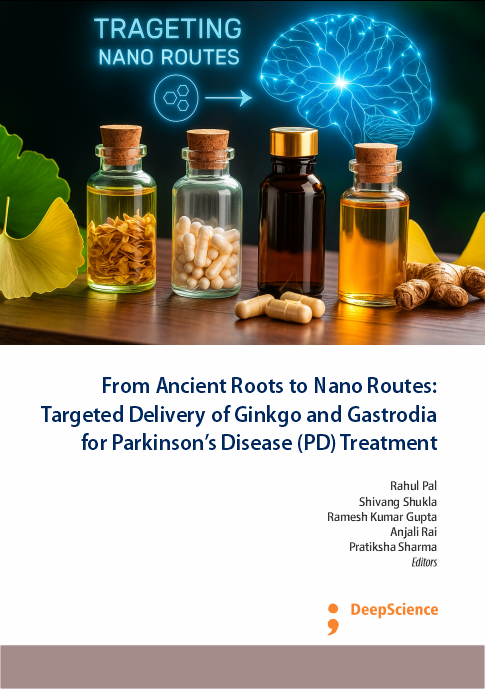Recent Advancement of Phytosomes and Phytoconstituents for the Targeting Herbal PD Treatment and Current Status
Synopsis
Background: Parkinson disease (PD) is a slowly progressive neurodegenerative disorder characterized by the loss of dopaminergic neurons and the presence of multi-faceted motor and non-motor symptoms. Partial symptom mitigation can only be performed pharmacologically and thus there is increased research to explore neuroprotective properties of herbal bioactives. However, poor solubility, lowered bioavailability, and weak ability to cross the blood-brain barrier limits the therapeutic efficacy of the usage of these compounds in clinical practice.
Objectives: The current chapter provides an overview of the recent developments of phytosome technology to deliver herbal phytoconstituents as a treatment against PD with focus on the major compounds, mechanisms, and current translational efforts.
Methods: literatures of the last decade, 2010-2025, were searched and questioned with special attention on phytosomes produced using neuroprotective phytoconstituents, which demonstrated anti-inflammatory, antioxidant, ant-aggregatory properties in the context of PD pathology.
Results: Phytosomes significantly improve the bioavailability and efficacy of important phytoconstituents such as curcumin, resveratrol, quercetin, epigallocatechin gallate (EGCG), and ginkgolides. The preclinical experiments exhibit improved motor performance, reduced oxidative stress, and inhibition of the alpha-synuclein aggregation. Despite the current stage of clinical evidence, data are also growing.
Conclusion: Phytosome delivery of herbal bioactives is a novel add-on approach to enhancing the treatment of PD that requires further clinical verification to streamline their therapeutic potential.
Keywords: PD, phytosomes, phytoconstituents, neuroprotection, herbal therapy, targeted delivery.













